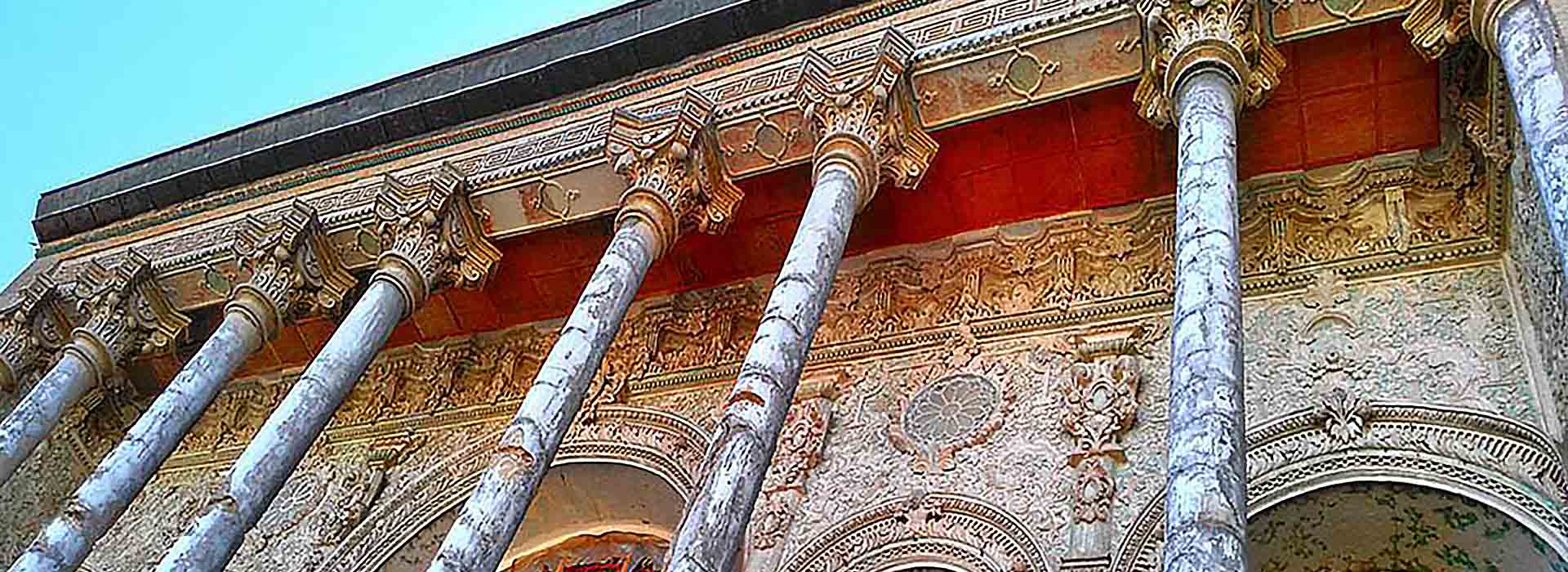Masoudieh mansion or the so called Emaraate Masoudieh is one of the most beautiful and historic mansions of Tehran, Iran. This mansion dates back to the Qajar era in the old town of Tehran and is located near Baharestan Square. The construction of Masoudieh mansion was completed in 1879. It was used as the residence of Masoud Mirza (one of the sons of Nasereddin Shah and the governor of Isfahan city). The glorious mansion is placed in a beautiful large Persian garden that covers a wide area of five hectares. Due to proximity to Baharestan square and Iran parliament, this historical mansion has been a venue for several noteworthy events in the country. Masoudieh mansion has witnessed decades of events most of which are political and in some cases cultural as well. In terms of historical value, Masoudieh mansion is considered the second historical structure in Tehran after the Golestan palace. In addition, this mansion has been home to first independent ministry of education and after seventy-five years it was handed over to Iran’s Cultural Heritage, Handicrafts and Tourism Organization and at the moment it is registered as a cultural heritage site.
12 different colorful buildings and a wonderful architecture make this outstanding palace an incredible unique tourist spot for those who aim to travel to Iran. The architecture of the mansion is a combination of European style and Persian architecture regarding the architecture trends of that time.
If you are looking for spending a few hours in peace and pleasure, Masoudieh palace is the right choice during your trip to Iran. There are some specific places in the mansion that help you experience a wonderful time in Masoudieh mansion. Some of them include a cozy colorful café that takes you years back in time, a silver jewelry shop where you can feast your eyes on some great brands inspired by the palace itself and a vintage furniture shop which brings back all the sweet memories of the past. Visiting the historical site of Masoudieh in Tehran is highly recommended to all travelers to Iran.

